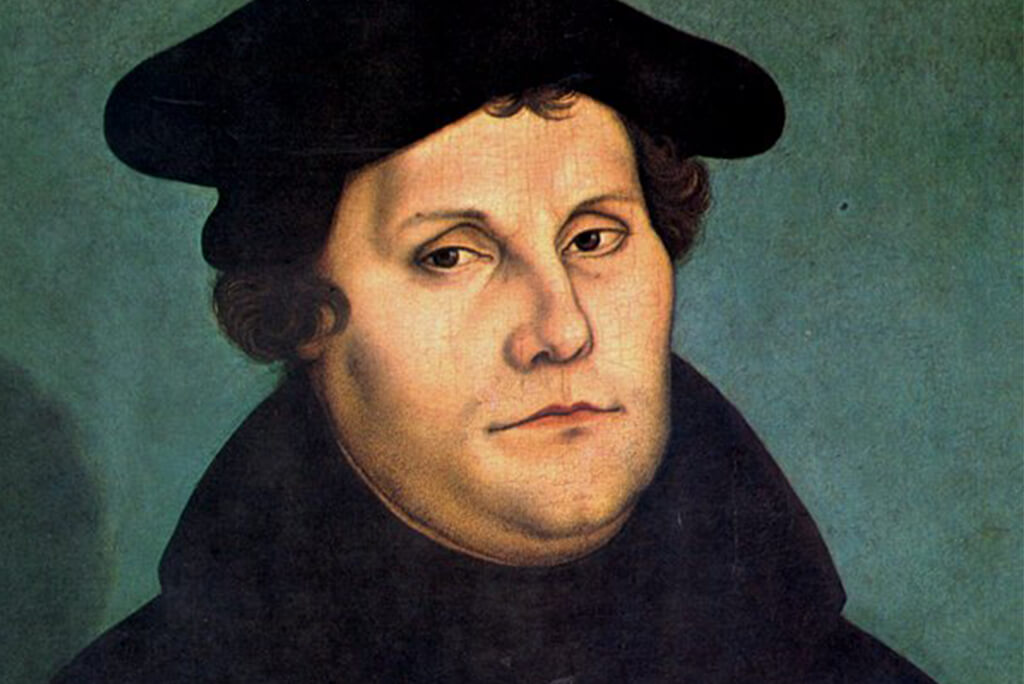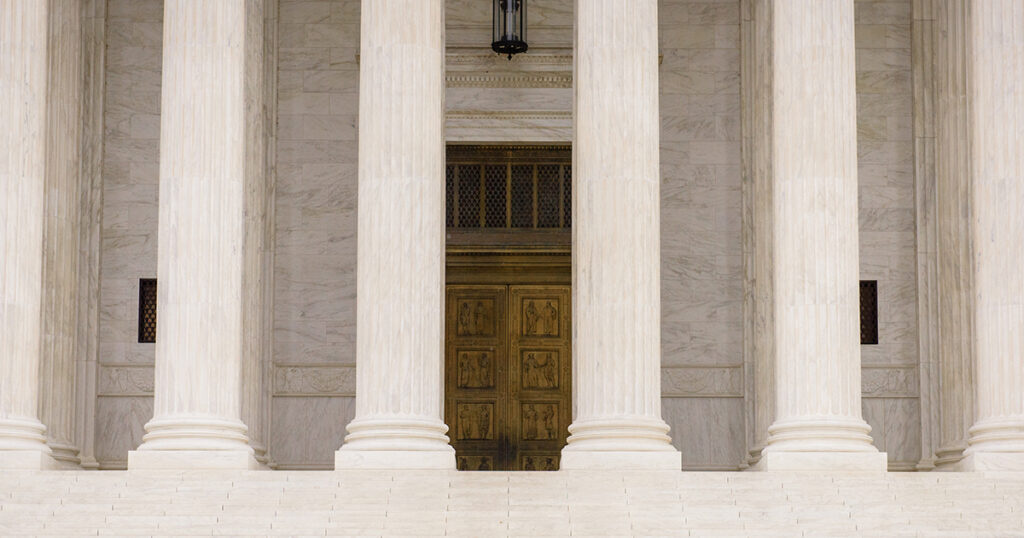Part 3 of a discussion of Martin Luther’s “The Freedom of a Christian.”[1] Read part 1 and part 2.
We have traced Luther’s argument in “The Freedom of a Christian,”that the inner person (the new creature in Christ) is fully and completely justified through faith without any works whatsoever. Works of the law do not contribute to righteousness before God. This was a radical teaching in the 16th century, and it remains so today. Luther’s opponents were worried that this teaching would undercut morality. After all, if people do not need to engage in good works to secure their salvation, why bother with attempting to live an ethical life?
Luther recognizes the objection. While good works have no necessity for the inner person, they are necessary on account of the outer person (the old creature inherited from Adam). Good works are necessary for two reasons: First, they discipline the old Adam, not merely keeping him in check but mortifying him, putting him to death. Second, good works are needed by my neighbor who lives in a fallen creation marked by hunger, sickness and bodily deprivation.
Works provide discipline
The inner person “conformed to God and created in the image of Christ through faith — is joyful and glad on account of Christ” (511). In Christ, the inner person recognizes that all good things are his without personal merit or worthiness. The inner person has the singular desire to “serve God joyfully, with boundless love and with no thought of earning anything” (511). At the same time, there is a contrary will at work in the flesh. This will seeks not Christ, but its own interest. This is the struggle described by the apostle Paul in Romans 7:22–23, “For I delight in the law of God, in my inner being, but I see in my members another law waging war against the law of my mind and making me captive to the law of sin that dwells in my members.” This puts the Christian who exists as both inner and outer person at the same time into a life of struggle against the impulses of sin. The outer person is continually crucified, put to death (see Gal. 5:24). Good works discipline the body, bringing it into conformity with the inner person who lives by faith alone.
These works of outer discipline do not bring about justification before God:
Because the soul has been cleansed through faith and made to love God, at the same time it wants all things (in particular the body) to be cleansed, so that all things may love and praise God with it. As a result, the human creature cannot be idle because of the demands of its body, and, because of the body, it attempts to do many good things to bring it under control. Nevertheless, these works are not what justify someone before God. Instead, the person who does them in compliance to God out of spontaneous love, considering nothing else than the divine favor to which the person wishes to comply most dutifully in all things. (512)
Luther does not prescribe specific works. Rather, each person will know what is necessary “for suppressing the body’s wantonness and desire” (512), and they will do so without believing that by these outward disciplines they are made righteous before God. Those who turn to these disciplines with justification in mind not only blaspheme God but injure themselves in body and mind:
They suppose that if they do so many great works, then they will fare well and be made righteous — sometimes even injuring their minds and destroying or at least rendering useless what makes them human. Wanting to be justified and saved through works without faith is simply monstrous foolishness and ignorance of the Christian life and faith! (512–13)
Works serve the neighbor
Faith focuses the Christian and his works back to his neighbor. Just as Adam worked prior to the fall, so the Christian has work to do on earth. Rather than drawing Christians out of creation, Luther’s argument reinserted believers into the world where they do not remain idle. Their works do not make them holy, but because they are holy through faith in Christ, they do holy works for the benefit of the neighbor.
Before discussing more fully the Christian’s good works in service of the neighbor, Luther clarifies once again the relationship of faith and works: “Good works do not make a person good, but a good person does good works” (514) and “Evil works do not make a person evil, but an evil person does evil works” (514). Quoting Jesus in Matthew 7:18, Luther asserts that a good tree bears good fruit. Luther presses this illustration reminding his readers that bad houses do not make bad carpenters but good carpenters build good houses. “For just as works do not make someone a believer, so also they do not make a person righteous. On the contrary, just as faith makes someone a believer and righteous, so also it produces good works” (515).
Because “works righteousness” is something of a natural heresy, Luther does not compromise the clarity of the Gospel: “A person is justified and saved not by works or laws but by the Word of God (that is, by the promise of God’s grace) and by faith” (517). He preaches both Law and Gospel, but he emphasizes that only the Gospel bestows the forgiveness of sins and creates faith.
Now Luther addresses how the good works produced by faith benefit and serve the neighbor. Good works do not inflate our personal spirituality but are “ordered toward the advantage of others” (521). Citing Philippians 2, Luther points out that just as Christ humbled Himself taking on the form of a servant so also those who belong to Christ by faith submit in service to those in need. Such submission takes place only in the freedom of faith; it cannot be forced by the imposition of the law, much less by the pope and church authorities.
Luther then concludes:
Christian individuals do not live in themselves but in Christ and their neighbor, or else they are not Christian. They live in Christ through faith and in the neighbor through love. Through faith they are caught up beyond themselves into God; likewise through love they fall down beneath themselves into the neighbor. (530)
This is Christian freedom. It stands in stark contrast to the fleshly freedom that enslaves and binds those who believe that their good works justify them before both God and the world. Luther’s confession of Christian freedom liberates the conscience and enlivens us for a life of faith and love.
We have come to the end of our three-part overview of Luther’s “The Freedom of a Christian.”If you want to dig deeper, you may wish to read:
- Iwand, Hans Joachim. The Righteousness of Faith According to Luther, trans. Randi H. Lundell. Eugene, OR: Wipf and Stock Publishers, 2008.
- Kolb, Robert. Luther’s Treatise On Christian Freedom and its Legacy. Lanham: Lexington Books, 2019.
- Muhlhan, Brett. Being Shaped by Freedom: An Examination of Luther’s Development of Christian Liberty, 1520–1525. Eugene, OR: Pickwick, 2012.
[1] All citations are taken from “The Freedom of a Christian” translated by Timothy J. Wengert in The Annotated Luther, Vol. I: The Roots of the Reformation (Minneapolis: Fortress Press, 2015), 467–538.
Photo by LCMS/Erik M. Lunsford.






The basic concept is that we are not saved by our works, but by grace, but if there is no fruit, where is faith evident? If we say we have faith, but it is in words only, how can it be real? In my humble view, the book of James explains it best, in ways we can all understand.
[Jesus said:] By this my Father is glorified, that you bear much fruit and so prove to be my disciples. These things I have spoken to you, that my joy may be in you, and that your joy may be full. John 15:8, 11 ESV
For we are his workmanship, created in Christ Jesus for good works, which God prepared beforehand, that we should walk in them. Eph. 2:10 ESV
Not works-righteousness, but works-fruitfulness. To God’s glory and our joy.